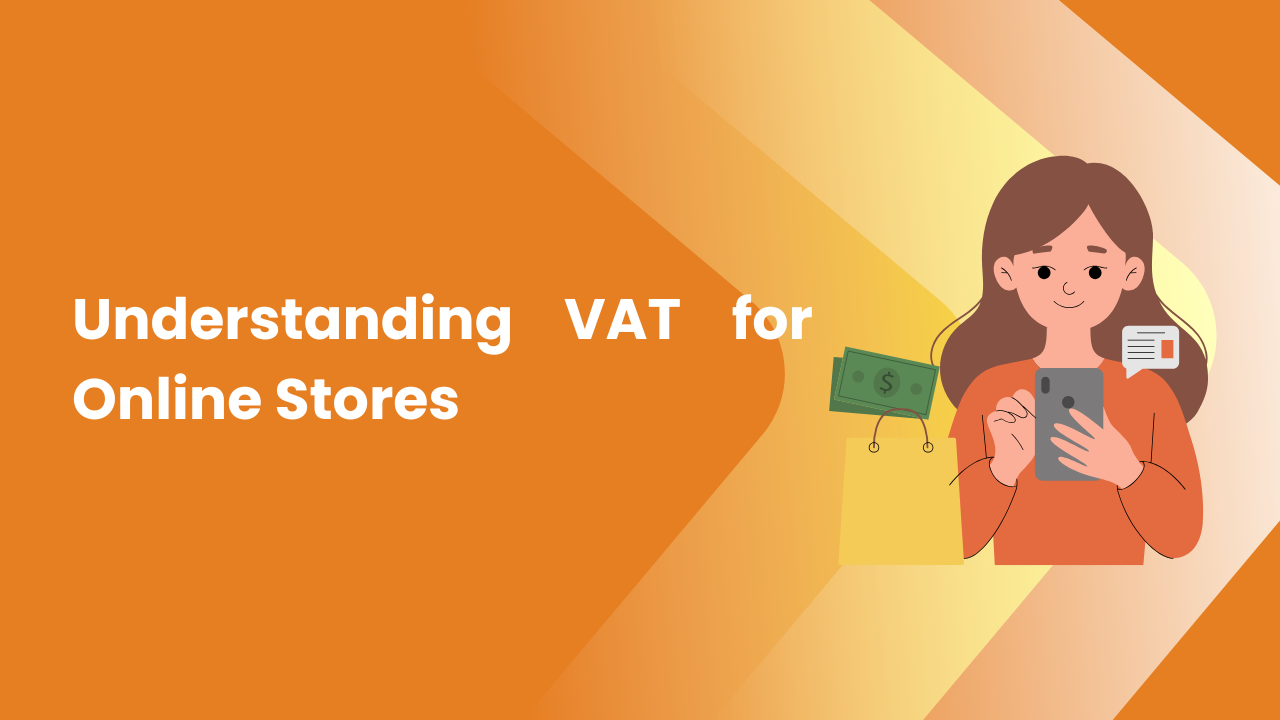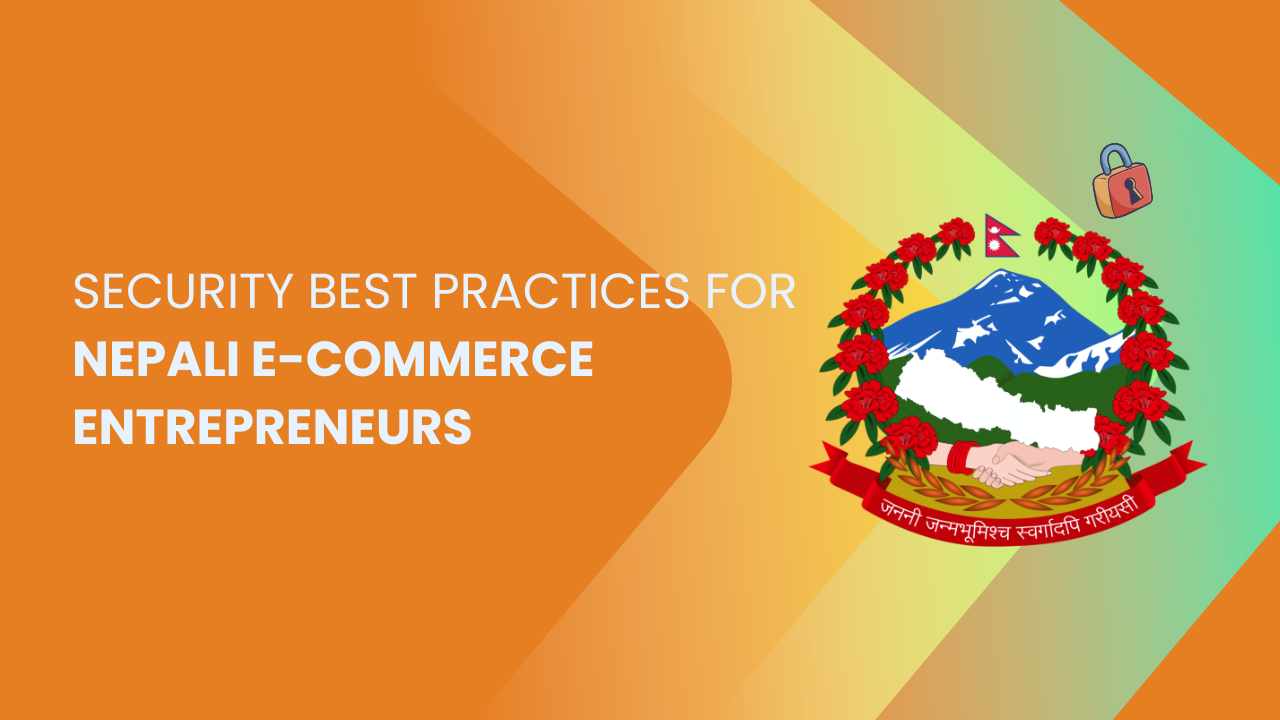Share this Article
Starting and running a successful online store in Nepal is an exciting venture, but it comes with its own unique set of challenges. One of the most significant hurdles for any e-commerce business is sourcing high-quality products from reliable suppliers. Without the right suppliers, your business could face delays, quality control issues, or customer dissatisfaction, all of which can affect your reputation and profitability.
Finding the right suppliers is a critical component of building a sustainable and profitable online store. Whether you're selling locally-made Nepali products or importing goods from international sources, securing the best suppliers is essential. This guide will walk you through the best practices for finding suppliers for your online store in Nepal, providing you with key insights to help streamline your sourcing process and ensure that your customers are satisfied with their purchases.
Understanding Your Product Requirements
Before you start your search for suppliers, it’s crucial to have a clear understanding of the products you plan to sell. Knowing what your business needs will help you find suppliers who specialize in these products. Here are a few things to consider before you begin:
- Product Type and Categories: What kind of products will you sell? Are you focusing on clothing, electronics, beauty products, handmade crafts, or something else? Defining your product categories is the first step toward finding the right suppliers.
- Quality Expectations: What level of quality are your customers expecting? If you plan to sell high-end luxury items, you’ll need suppliers who can meet your premium standards. Conversely, budget-friendly products will require different supplier considerations.
- Order Volume: Will you be purchasing in bulk or do you plan to start with small, individual orders? Understanding this will help you find suppliers that can meet your specific volume requirements.
- Delivery Time: How quickly do you need the products delivered to your customers? Fast and reliable shipping is a critical factor in customer satisfaction, especially when it comes to online shopping.
By having a clear picture of what your product needs are, you can streamline your search for suppliers and avoid wasting time with those who aren’t a good fit for your business.
Exploring Local Suppliers
When you’re starting an e-commerce business in Nepal, it’s often advantageous to begin by working with local suppliers. This can offer numerous benefits, such as faster shipping, lower shipping costs, and the ability to foster closer relationships with your suppliers. Here’s how you can find local suppliers for your online store in Nepal:
1. Nepal-Specific B2B Marketplaces
One of the most straightforward ways to find local suppliers is through B2B marketplaces that cater to the Nepali market. These platforms allow you to connect directly with manufacturers, wholesalers, and distributors in Nepal.
- NepalB2B: This is one of the most popular B2B platforms in Nepal, providing a directory of suppliers from different industries. You can filter suppliers based on product categories, and it's a good place to start if you are looking for manufacturers or wholesalers in Nepal.
- HamroBazar: Although primarily a C2C platform, many small and medium-sized businesses use HamroBazar to list their products. This can be a great place to discover local sellers and distributors, especially in categories like electronics, clothing, and home goods.
These platforms allow you to contact suppliers directly, negotiate prices, and get an understanding of their product offerings and terms.
2. Attending Trade Fairs and Exhibitions
Trade fairs and exhibitions are excellent opportunities to meet local suppliers in person. Events like the Nepal International Trade Fair, which is held annually in Kathmandu, attract manufacturers and wholesalers from various industries. By attending these events, you can:
- See products firsthand.
- Meet suppliers in person and build stronger relationships.
- Compare products, quality, and prices.
- Discuss terms, including shipping and payment.
Exhibitions also provide the opportunity to network with other business owners who may offer valuable insights into their supplier relationships.
3. Wholesale Markets in Nepal
Nepal is home to several bustling wholesale markets that can be valuable resources for e-commerce businesses. Markets like Asan Market in Kathmandu and Indrachowk are known for their vast array of products ranging from clothing and electronics to household goods and accessories. Visiting these markets can help you:
- Find suppliers who are active in the Nepali retail industry.
- Negotiate better deals through face-to-face meetings.
- Inspect products in person to ensure they meet your quality standards.
These markets provide direct access to wholesalers, and many are willing to partner with e-commerce businesses to sell their goods online.
4. Referrals and Networking
In Nepal, business relationships are often built on trust and personal connections. Don’t underestimate the power of word-of-mouth recommendations. Reach out to local business owners, industry groups, or even friends who may have experience working with suppliers. Referrals can help you find trustworthy suppliers who have a proven track record.
Networking events and online forums dedicated to Nepali e-commerce businesses can also provide valuable connections. The local business community is often eager to collaborate, and you may discover suppliers through these networks that you wouldn’t find elsewhere.
Considering International Suppliers
While local suppliers can offer distinct advantages, there may be times when international suppliers are a better fit for your business. Whether you’re looking for better pricing, higher-quality products, or goods that aren’t readily available in Nepal, international suppliers can broaden your product range. However, working with international suppliers requires careful consideration:
1. Popular International Platforms
Some of the most well-known international platforms for sourcing products are:
- AliExpress: A popular platform for dropshipping, AliExpress offers a wide range of products at competitive prices, and many suppliers ship globally, including to Nepal.
- Alibaba: For bulk purchases, Alibaba is one of the largest global B2B marketplaces. You can find suppliers for nearly every product category and negotiate directly with manufacturers.
- Global Sources: Similar to Alibaba, Global Sources is a global marketplace that connects buyers with suppliers worldwide, particularly in industries like electronics, fashion, and accessories.
These platforms allow you to filter suppliers based on factors like product type, price, and minimum order quantity (MOQ), making it easier to find the right fit for your business.
2. Shipping and Logistics
One of the biggest challenges with sourcing internationally is managing shipping and logistics. Shipping costs can add up quickly, and delivery times may be longer. To minimize these challenges:
- Work with international suppliers who offer reliable shipping methods like DHL, FedEx, or Aramex.
- Consider the time it will take for goods to clear customs in Nepal.
- Be mindful of any additional import duties and taxes that might apply.
It’s essential to partner with suppliers who offer clear and reasonable shipping timelines to ensure your customers receive their orders on time.
3. Managing Customs and Import Duties
Importing goods into Nepal comes with specific regulations, including customs fees and import duties. It’s important to understand the tax structure and how it will affect the cost of your products. Consult with a customs broker or logistics provider to help navigate this process and avoid unexpected costs.
4. MOQ (Minimum Order Quantities)
Many international suppliers, especially those on platforms like Alibaba, have a minimum order quantity (MOQ). As a new business, you may not be ready to commit to large volumes right away. It’s crucial to find suppliers who are flexible with their MOQ, or consider dropshipping models where you can order products individually rather than in bulk.
Evaluating Supplier Reliability
After finding a list of potential suppliers, the next step is evaluating their reliability. A trustworthy supplier is crucial to the smooth operation of your e-commerce business. Here’s how to assess potential suppliers:
1. Product Quality
Product quality is non-negotiable, as it directly affects customer satisfaction. Before committing to a supplier, request product samples to assess their quality. You can also check customer reviews and ask for references from other businesses who’ve worked with them. Pay attention to consistency in product quality and whether the supplier can meet your standards over time.
2. Delivery Times
Fast and reliable shipping is one of the key factors that customers expect in online shopping. Ensure that your suppliers can meet your delivery requirements by confirming their shipping timelines. It’s a good idea to place a small order initially to test the supplier’s shipping speed and the condition of the products upon arrival.
3. Communication and Support
Effective communication is essential in any supplier relationship. A supplier who is easy to contact and responsive to your queries will make the partnership smoother. Test their communication by reaching out with questions and see how quickly they respond and how helpful they are.
4. Stability and Longevity
Check the background and track record of your suppliers. Have they been in business for a while? Do they have a reputation for reliability and customer service? Long-term suppliers are generally more stable, and their experience will help ensure that your business runs smoothly.
Building Long-Term Relationships with Suppliers
Once you’ve found reliable suppliers, it’s important to cultivate strong relationships with them. Treat your suppliers as business partners, and ensure that communication remains open and transparent. A long-term partnership with your suppliers can lead to benefits such as:
- Preferential pricing or discounts for bulk orders.
- Priority stock during high-demand periods.
- Improved customer service and support.
- Better product selection and exclusivity.
By working together, you and your suppliers can build a relationship that supports the growth and success of your business over time.
Conclusion
Finding the right suppliers for your online store in Nepal is a crucial step toward building a successful and sustainable business. Whether you choose local suppliers, international partners, or a combination of both, the key is to ensure that your suppliers align with your business needs, offer high-quality products, and have reliable shipping practices. By following the steps outlined in this guide, you can find suppliers that will help you provide excellent products and services to your customers, ensuring long-term success in Nepal’s growing e-commerce market.
Categories:
Beginner’s Guides
Tags:
OnlineStore
,
EcommerceTips
,
BusinessNepal
,
DropshippingNepal
,
WholesaleNepal







